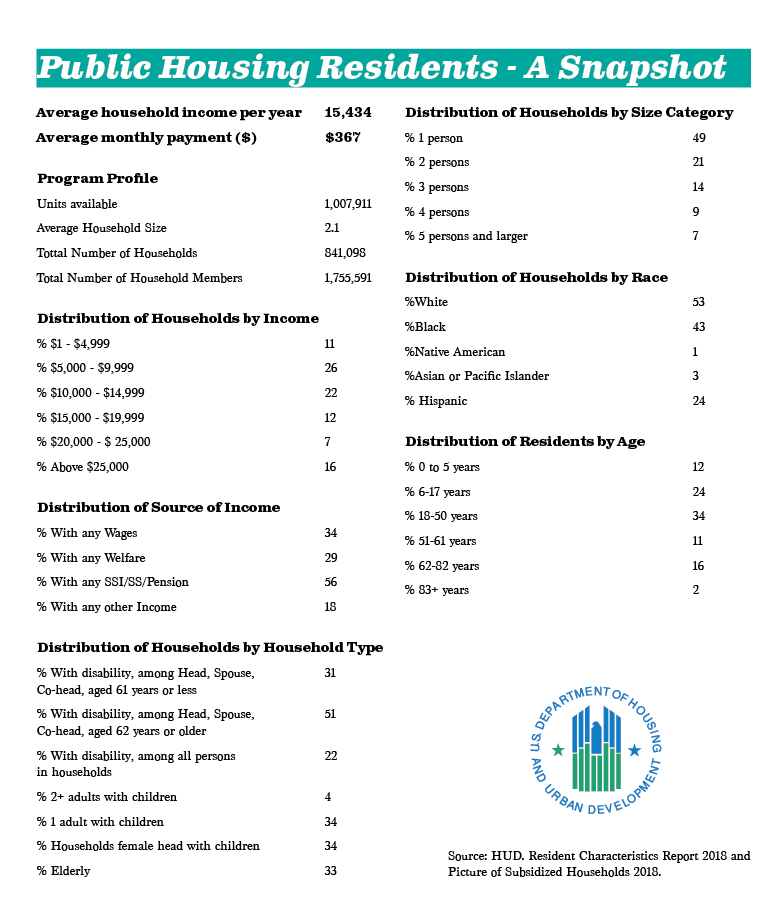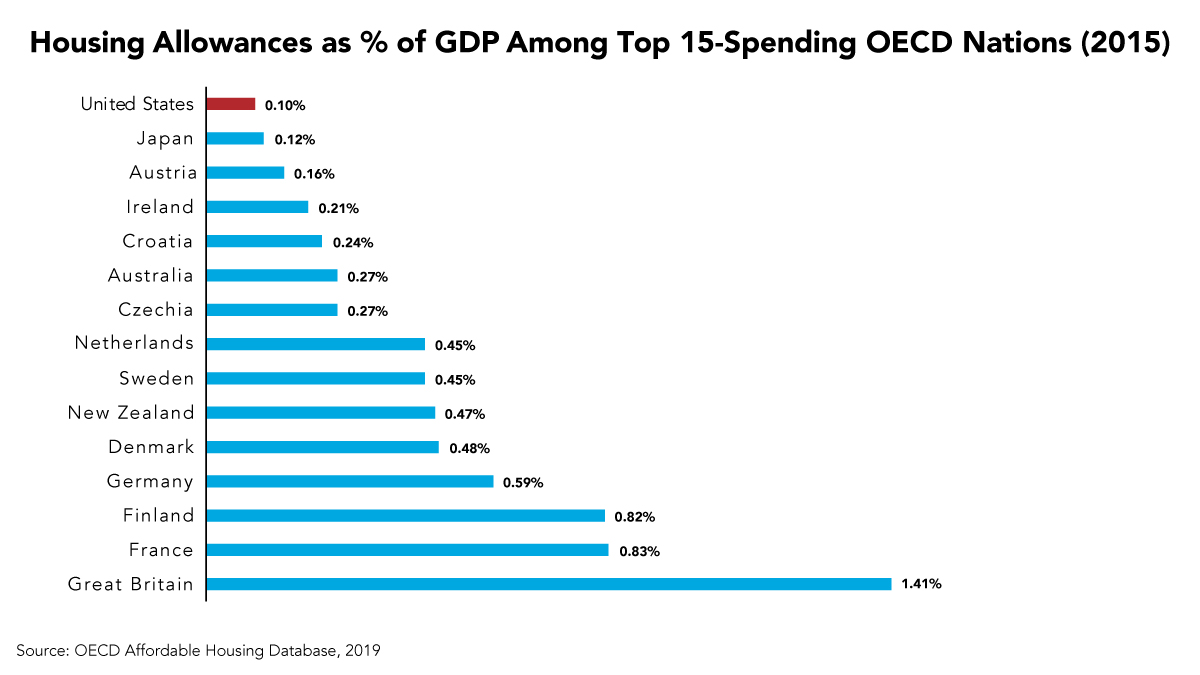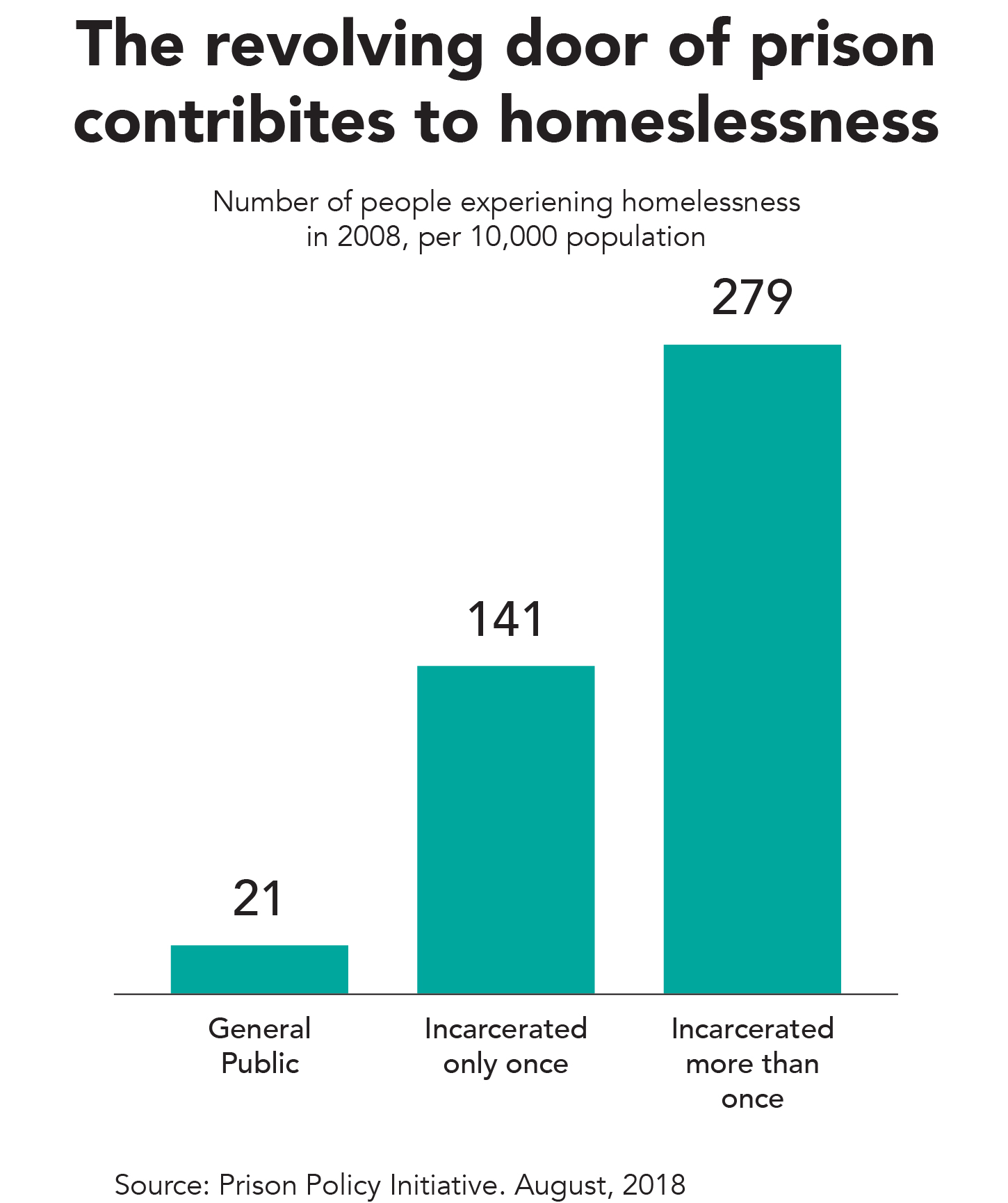Lawmakers Introduce Bills to Improve Public Housing
For every 100 extremely low-income renter households in the U.S., there are only 37 available and affordable rental units. Public housing plays a crucial role in addressing the gap between affordable housing supply and demand, but decades of federal disinvestment has decreased the quantity and quality of the public housing stock. Members of Congress have introduced several bills this year aimed at improving conditions for public housing residents and increasing the supply of affordable, accessible housing. NLIHC policy staff have played an important advisory role in crafting and building support for many of these proposals.
Representative Maxine Waters (D-CA) released on April 30 a draft of her “Housing is Infrastructure Act,” which she is expected to introduce in the House this fall. The bill would invest $70 billion in needed repairs to public housing and $5 billion in the Housing Trust Fund (HTF), a program that funds the development of new housing for the lowest-income households.
Senator Elizabeth Warren (D-MA) and Representative Cedric Richmond (D-LA) introduced the “American Housing and Economic Mobility Act” (S. 787/H.R.1737) on March 13. The bill would invest $3.6 billion in the Public Housing Capital Fund to address public housing’s severe repair needs as well as $445 billion in the HTF over 10 years. It would also expand the Fair Housing Act to ban housing discrimination on the basis of sexual orientation, gender identity, marital or veteran status, and source of income, which would make it easier to use Housing Choice Vouchers. The legislation would provide $25 billion for the Capital Magnet Fund to build new affordable homes and community service facilities and would set aside $2 billion for HUD’s Indian Housing Block Grants and $8 million for the Native Hawaiian Housing Block Grant, funding housing construction and rehabilitation on tribal and Hawaiian home lands.

NLIHC President and CEO, Diane Yentel joins Sen. Elizabeth Warren and Rep. Cedric Richmond to announce the American Housing and Economic Mobility Act.
Senator Tammy Duckworth (D-IL) and Representative Daniel Kildee (D-MI) introduced the “Get the Lead Out of Assisted Housing Act” (S. 2087/ H.R. 3721) on July 11. The bill would enhance protections against lead poisoning in public housing through a grant pilot program to give state and local governments resources to identify and fix threats of lead in drinking water.
Representative Yvette Clarke (D-NY) introduced the “Hardest Hit Housing Act” (H.R. 2295) on April 12. The bill would authorize an additional $4 billion for the Public Housing Capital Fund Program and create an additional 20,000 housing vouchers every year until 2023.
Senator Marco Rubio (R-FL) and Representative Steve Cohen (D-TN) introduced on July 23 the “Housing Accountability Act” (S. 1270/H.R. 3902), which would require any housing provider receiving federal funds to maintain “decent, safe, and sanitary” housing conditions and would mandate a semi-annual survey of public housing tenants to evaluate the condition of housing units. Property owners would face fines if their buildings fail to meet requirements.
Senator Kamala Harris (D-CA) and Representative Jesus Garcia (D-IL) introduced on March 12 the “Safe Housing for Families Act,” which would mandate the installation of carbon monoxide detectors on every floor of a public housing unit.

Federal Budget Updates
The new fiscal year (FY 2020) started October 1, but Congress has yet to finalize the twelve annual spending bills needed to fund federal agencies and programs. Both the House and the Senate introduced their versions of the bills funding HUD, but the Senate has not yet passed its proposal. To give itself more time, Congress passed a temporary spending bill, known as a continuing resolution, to keep the government open through November 21.
The Senate waited to write its spending bills until Congress and the White House had agreed to lift overall spending caps that would have significantly limited funding for affordable housing, community development, and other critical programs. The House wrote and passed its bills before the deal was finalized at the beginning of August and included $1.5 billion more for HUD programs than the Senate. Both bills reject the deep cuts proposed by President Trump.
Both the Senate and House proposals fully fund Housing Choice Vouchers, although the House plan includes additional money for youth aging out of foster care and a mobility-voucher pilot program that would help families with young children move to neighborhoods with better schools, lower rates of crime and poverty, and additional economic opportunities.
The House also provided a substantial increase in funding for public housing not matched by the Senate. Both bills recommended new competitive grants ($50 million in the House and $40 million in the Senate) for public housing agencies (PHAs) to reduce lead-based paint hazards and other health hazards, including mold and carbon monoxide poisoning. The bills differed on funding levels for Housing Opportunities for Persons with AIDS (HOPWA), housing for the elderly (Section 202), housing for persons for persons with disabilities (Section 811), and several community development block grant programs. Both bills have positive aspects, and NLIHC and other advocates will continue working with Congress to ensure public housing, rental assistance, and other important programs receive the highest levels of funding possible.
Advocates are also watching for policy riders. Although spending bills are supposed to only provide funding, members of Congress try to attach language – or policy riders – that advance non-funding-related policies. Some of these policy riders are helpful, such as those blocking HUD proposals to evict mixed-status immigrant families or to allow shelters to discriminate against LGBTQ individuals experiencing homelessness. Others can be extremely harmful, like restricting access to housing for formerly incarcerated and justice-involved people.
As the House and Senate negotiate over the differences in their bills, NLIHC urges advocates across the country to engage with their members of Congress to push for the highest spending levels possible for affordable housing programs.

Fair Chance at Housing Act
Senator Kamala Harris (D-CA) and Representative Alexandria Ocasio-Cortez (D-NY) introduced the “Fair Chance at Housing Act of 2019” (S 2076/HR 3685) on July 10. The bill aims to increase access to affordable homes for individuals who have had contact with the criminal justice system by changing the eviction and screening process for federal housing assistance.
Under current law, housing authorities and other federally-assisted housing providers can openly discriminate against individuals with a criminal record. Rising rents, flat wages, and openly discriminatory practices make formerly incarcerated people – who are most often people of color, people with disabilities, and members of the LGBTQ community – uniquely vulnerable to homelessness.
The bill would require public housing agencies (PHAs) and owners of HUD-assisted housing to create a review panel with at least one resident representative. The panel would conduct an individualized review of applicants considering the full circumstances of an applicant’s criminal history as well as any supporting documents provided by the applicant, like evidence of rehabilitation, reduced sentence, and letters of recommendation. Housing providers would be able to consider only felonies that resulted in a conviction and that could threaten the health or safety of other tenants, employees, or owners. Other interactions with the criminal justice system, e.g., arrests without convictions, offenses sentenced to probation, minor drug offenses, and offenses related to the individual’s inability to pay legal fees, would not prevent someone from receiving federal housing assistance. If a PHA denies an applicant, it would need to provide the reason in writing and give the applicant the opportunity to appeal` the decision.
The bill would also eliminate “one-strike” eviction policies that allow PHAs and owners to evict an entire household if a member or guest engages in criminal activity. Like the screening process, PHAs and owners would be able to consider only activities that could threaten the health and safety of others and would need to conduct an individualized review taking into account the family’s full circumstances before ending a lease. If the PHA or owner decides to evict the family, the family would have the option of removing the offending member of the household to stay in the housing. The current requirement that PHAs and owners include “no-fault” eviction policies, which allow a household to lose its assistance because of a guest’s drug-related criminal activity even if the household is unaware the activity is taking place, would be eliminated.
The legislation would also ban forced entry into federally assisted housing to investigate criminal conduct, and end drug and alcohol testing as a requirement for receiving federal housing assistance. Finally, the bill would bar PHAs from banning non-tenants from visiting a public housing development based on their past criminal conduct, unless the non-tenant was convicted of a felony that threatens other peoples’ health or safety.
These measures would help end the cycle of homelessness and recidivism by expanding opportunities for stable, affordable, accessible housing, and ensuring formerly incarcerated individuals can reunite with their families. NLIHC urges low-income residents and housing advocates to tell their members of Congress to pass this important legislation!

Proposed Mixed-Status Rule
HUD published a proposed rule in May that would significantly change eligibility requirements for federal housing assistance based on immigration status. According to the agency’s own analysis of the proposal’s potential impacts, more than 25,000 families – including at least 55,000 children who are citizens or legal residents – could be evicted under the rule.
The proposed rule would prohibit “mixed-status” families from living in public housing or Section 8 homes. Mixed-status families are families that include household members who are eligible and ineligible for housing assistance based on their immigration status. Under current law and policy, HUD prorates rental assistance so that the subsidy only covers eligible members. The family must pay the difference. This policy allows mixed-status families to receive needed housing assistance and remain living together. The current policy recognizes that ineligibility for assistance does not mean that one is undocumented. The proposed rule would force families to either separate as a family to keep their housing assistance or face eviction and potentially homelessness, disparately impacting the most vulnerable members of our society.
Through the Keep Families Together campaign, NLIHC and the National Housing Law Project lead efforts to mobilize advocates across the country to oppose this cruel proposed rule. More than 30,000 organizations and individuals submitted comments during the required public comment period. The previous record for a HUD rule was just over 1,000 comments. Members of Congress also expressed strong opposition to the proposed rule, and several introduced bills preventing HUD from implementing it.
This extraordinary response shows that people understand that blaming struggling families will not fix the nation’s affordable housing crisis. The USDA Rural Housing Service is expected to release a similar proposal later this year. These proposals are additional attempts by the administration to instill fear in U.S. immigrants. If the Trump administration was truly concerned about providing affordable, accessible housing, it would not have repeatedly proposed severe cuts to housing assistance programs.
HUD’s rule is not yet final and mixed-status families currently receiving housing assistance should continue participating in these programs. Several organizations and states plan to sue HUD if and when a final rule is published. To learn more and stay up-to-date, visit www.Keep-Families-Together.org. Also urge your legislators to pass any bill that would prevent this rule’s implementation.
